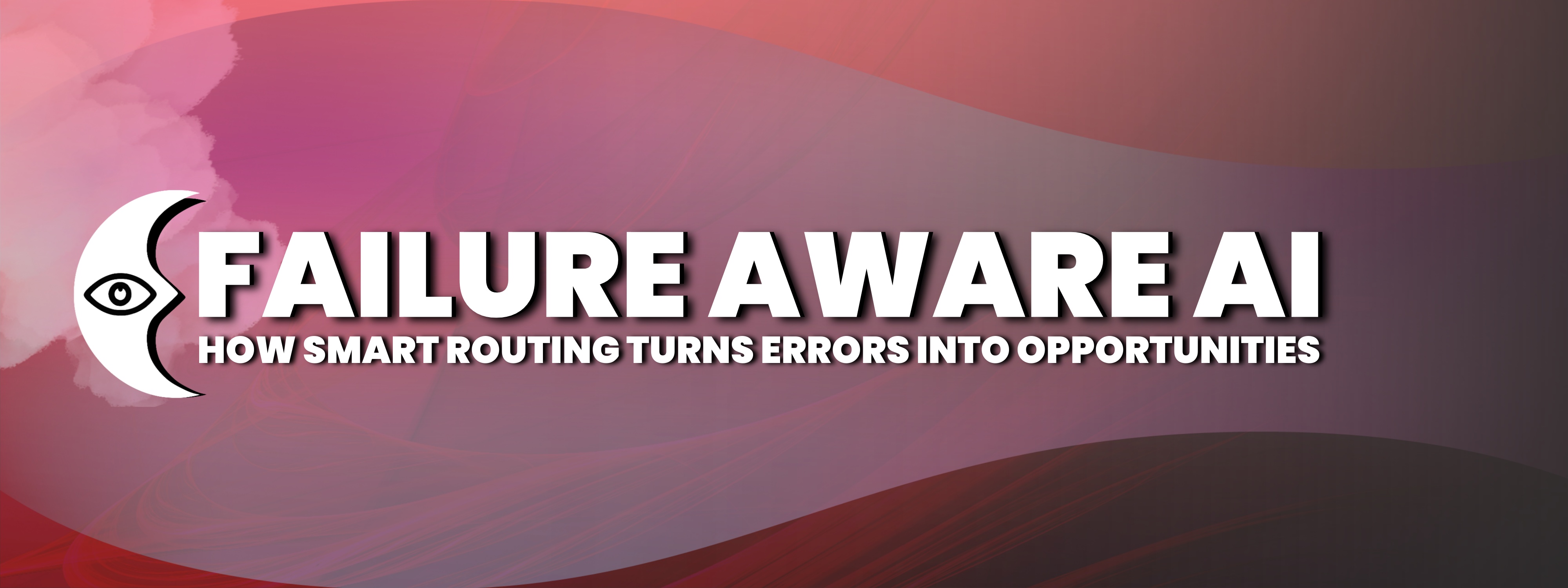Failure-Aware AI: How Smart Routing Turns Errors Into Opportunities
Executive Summary (TL;DR)
- AI failures are inevitable, but not all failures are equal.
- Hallucinations, slow responses, and no responses each require different handling.
- Kumari AI’s failure-aware routing detects and redirects failures in real time.
- The result: higher reliability, stronger trust, and measurable business impact.
Artificial Intelligence has moved from research labs into our daily
lives, powering customer support, coding assistance, healthcare
recommendations, and much more. But there’s one uncomfortable truth: AI
doesn’t always perform perfectly.
Sometimes it gives the wrong answer. Sometimes it’s too slow. And
sometimes it doesn’t respond at all.
At Kumari AI, we turn failures into opportunities to build stronger,
more resilient AI systems.
That’s the promise of Failure-Aware AI Routing, a core part of our
mission.
Not All Failures Are Equal
Failures in AI come in different forms. The three most common “failure modes” are:
1. Hallucinations
- The AI generates confident but factually incorrect responses.
- Example: A coding assistant invents a non-existent library.
- Impact: Misleads users and erodes trust.
2. Slow Responses
- The AI eventually responds, but with unacceptable latency.
- Example: Waiting 30+ seconds for a translation when speed is critical.
- Impact: Frustrates users, breaks workflows, and limits usability.
3. No Response
- The AI model times out or the service crashes.
- Example: API outage during peak usage.
- Impact: Leaves the user with nothing, productivity comes to a halt.
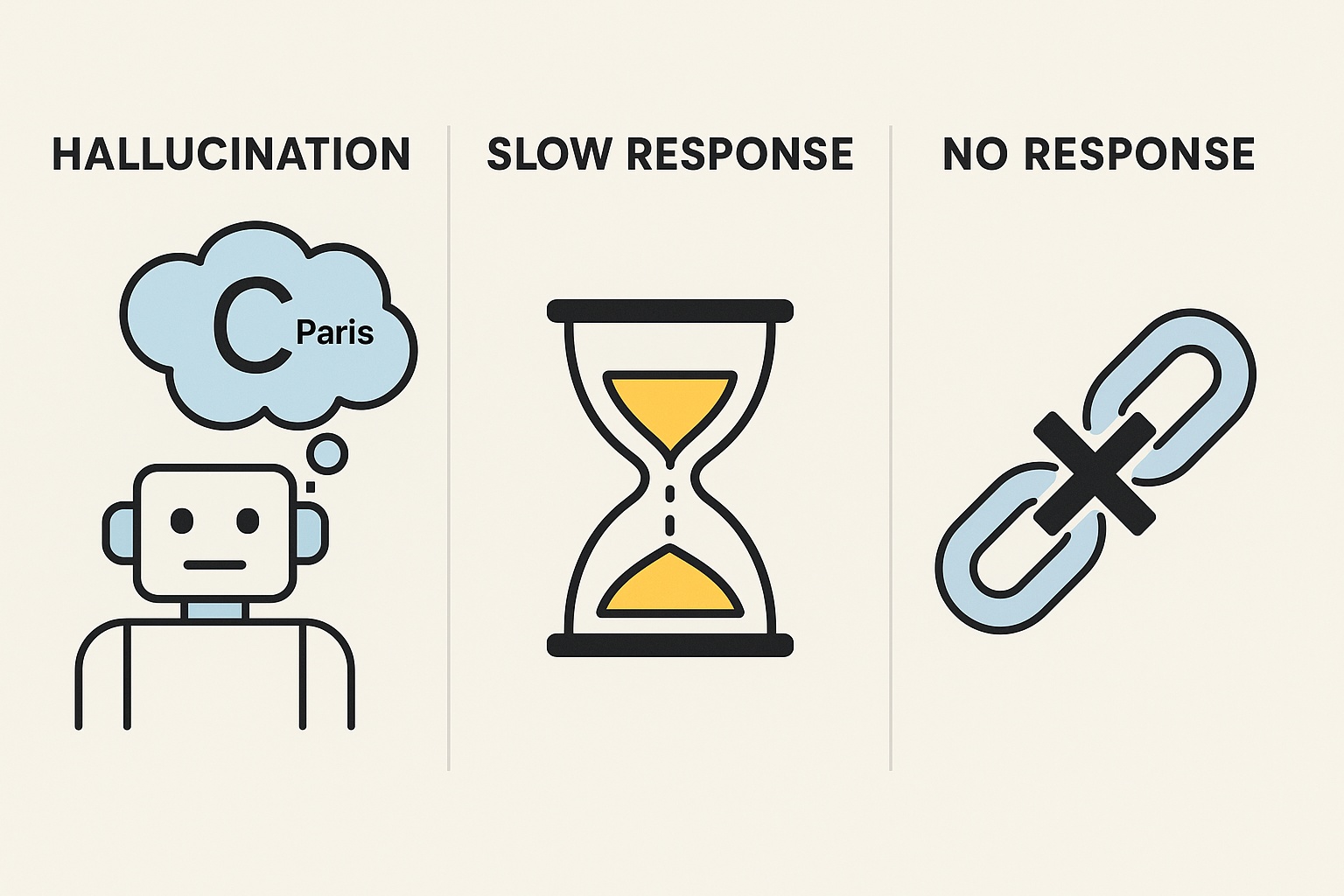
Smart Routing With Failure Awareness
Most AI routing systems today focus on speed, accuracy, and cost. While important, they ignore a crucial dimension: resilience in the face of failure.
Kumari AI introduces a new paradigm: failure-aware routing.
Hallucination Detection
Routes sensitive queries to conservative models when accuracy is critical (e.g., coding, healthcare).
Latency Awareness
If a model lags, queries are redirected to faster alternatives, ensuring responsiveness for real-time use cases.
Fallback on Outages
If a provider is down, requests are instantly rerouted to backups, avoiding downtime and ensuring continuity.
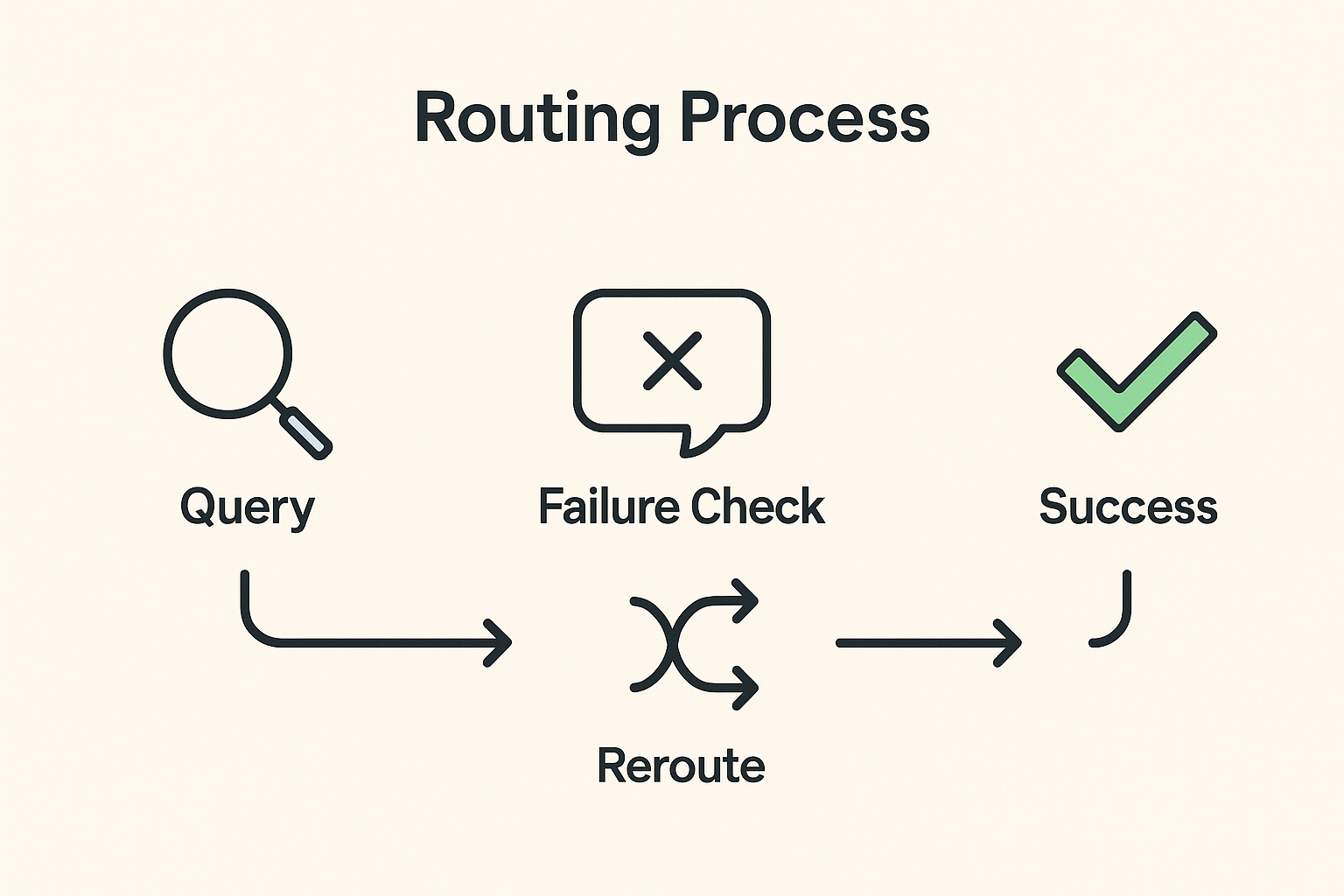
This transforms routing from a performance tool into a resilience engine.
Turning Failures Into Opportunities
Failures, when tracked and analyzed, become powerful learning signals. Kumari AI treats every failure mode as a data point for improvement.
For example:- Pattern Learning: Identifies recurring weaknesses (e.g., hallucinations in legal queries, latency in bulk translation).
- Dynamic Adaptation: Continuously refines failover strategies based on usage.
- Trust Building: Guarantees that users always receive an answer, even if the first model stumbles.
Instead of fearing errors, failure-aware routing embraces them as feedback loops.
Why This Matters for Businesses
For enterprises adopting AI at scale, reliability isn’t optional, it’s mission-critical.
- Customer Support: Keeps service fast and accurate, even during spikes.
- Healthcare & Finance: Reduces risk by routing away from hallucination-prone models.
- Creative Workflows: Ensures continuity when one model struggles with style or output.
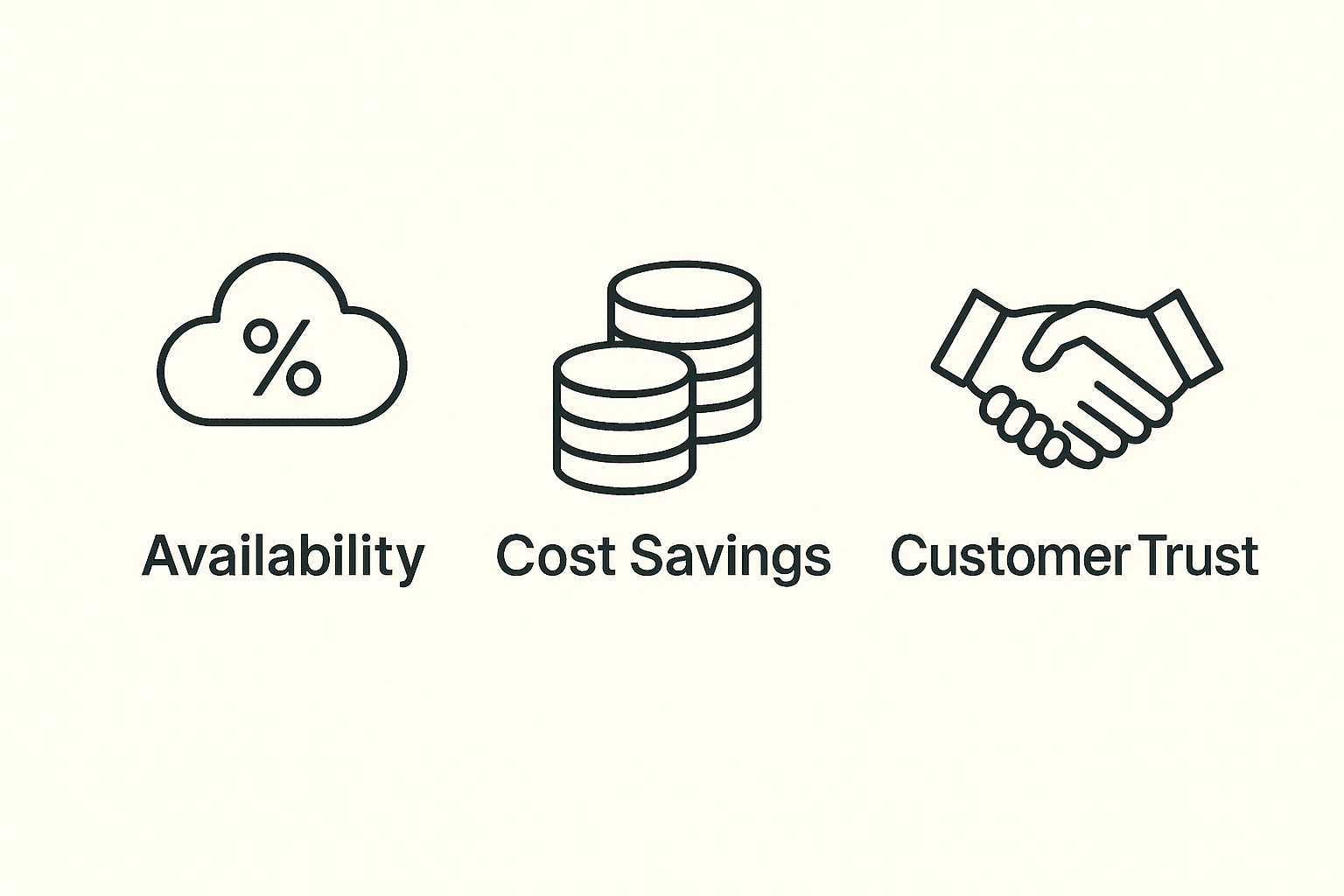
Proof Point:
- In one pilot with a customer support platform, failure-aware routing cut failed responses by 40%.
- Average response latency was reduced by 28%, significantly improving user experience.
- Multi-provider redundancy achieved 99.95% uptime across workloads.
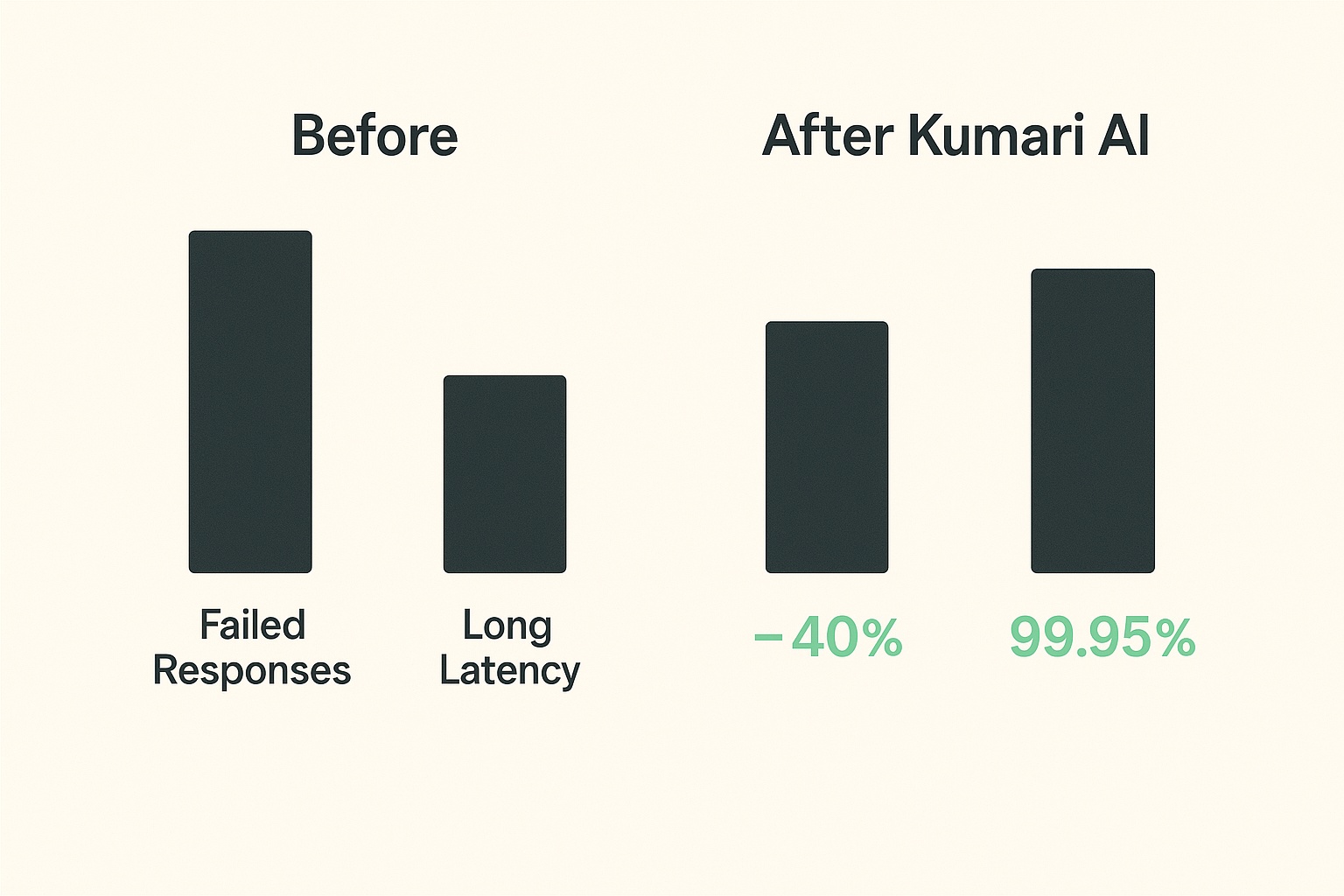
Business impact:
- Higher availability and reliability.
- Cost savings through optimized failover, not over-provisioning.
- Improved CSAT and compliance confidence.
Thought Leadership: Resilience as the Next AI Standard
Today’s AI landscape often celebrates speed, cost, or raw accuracy, but
resilience is too often overlooked.
Kumari AI believes resilience will be the next defining standard in AI
infrastructure. By pioneering failure-aware routing, we’re setting the
foundation for systems that aren’t just smart, but dependably smart.
Just as cybersecurity became a baseline expectation for digital systems,
resilience will become a baseline expectation for AI.

The Future of Resilient AI
As AI evolves, users will demand more than flashy demos. They’ll ask:
- Can I trust this AI not to mislead me?
- Will it still work if one provider goes down?
- Can it adapt if the task changes mid-way?
With failure-aware routing, Kumari AI ensures the answer is yes.
Failures aren’t the end of the road, they’re stepping stones toward a
smarter, safer, and more reliable AI ecosystem.

Key Takeaways
- AI failures are inevitable, but not all failures are equal (hallucinations, latency, outages).
- Failure-aware routing turns errors into resilience by detecting, redirecting, and learning from failures in real time.
- Resilience > raw performance, businesses need AI that adapts and recovers, not just AI that’s fast or cheap.
- Enterprises benefit directly, improved uptime, reduced costs, higher trust, and better compliance confidence.
- Resilience will be the next AI standard, just as cybersecurity became table stakes for digital systems.

